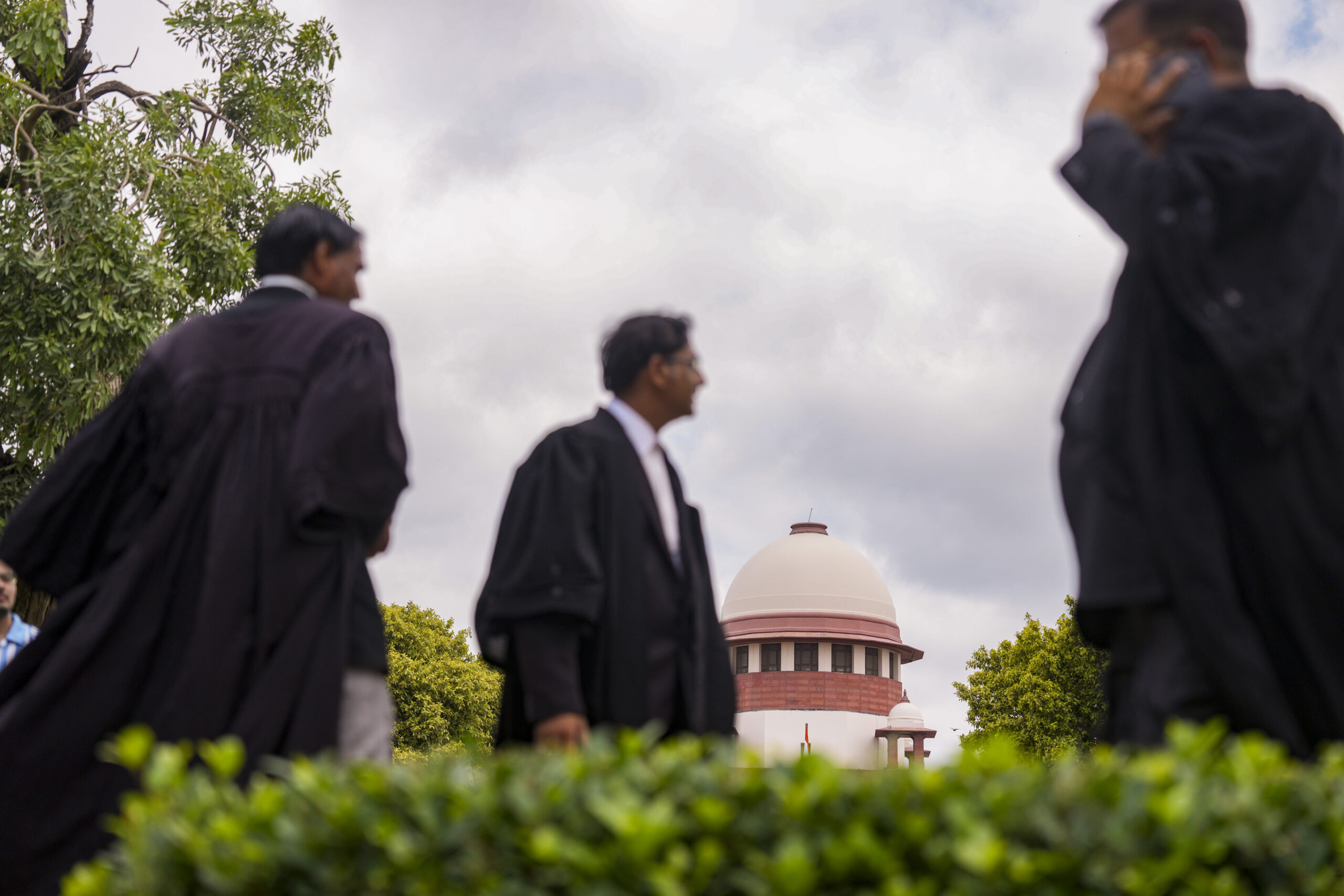Politics
Supreme Court Reserves Verdict on Governor Assent Timelines

The Supreme Court of India has reserved its verdict regarding the constitutional question of whether it can impose timelines for governors and the President to assent to bills passed by state legislatures. This decision follows a ten-day hearing that concluded on August 31, 2023. A Constitution bench, led by Chief Justice B R Gavai and including Justices Surya Kant, Vikram Nath, P S Narasimha, and A S Chandurkar, initially began deliberations on this matter on August 19.
The case arose from a presidential reference made by President Droupadi Murmu, who sought clarity on the legal authority of the judiciary to set timelines for the President’s discretion regarding state legislation. This inquiry was prompted by a April 8 ruling from the Supreme Court concerning the powers of governors in relation to bills passed by the Tamil Nadu government.
During the proceedings, the Attorney General, R Venkataramani, presented the government’s stance before the bench. His arguments were complemented by those of Solicitor General Tushar Mehta, who represented the central government. Both officials contended against the positions taken by several opposition-ruled states, including Tamil Nadu, West Bengal, Kerala, Karnataka, Telangana, Punjab, and Himachal Pradesh. These states had opposed the presidential reference, raising concerns about the implications of judicial timelines on the legislative process.
In May, President Murmu utilized her authority under Article 143(1) of the Constitution to refer the matter to the Supreme Court. This article allows the President to seek the court’s opinion on legal questions of public importance. The President posed a series of 14 questions regarding the powers of the Governor and the President under Articles 200 and 201 of the Constitution, which outline their roles in the legislative process.
As the court deliberates, the outcome could have significant ramifications for the relationship between state legislatures and the constitutional powers held by governors and the President. The decision is eagerly awaited by legal experts and political analysts alike, who are keen to understand how the court’s ruling might alter the dynamics of state governance and legislative approval processes in India.
-

 World5 months ago
World5 months agoSBI Announces QIP Floor Price at ₹811.05 Per Share
-

 Lifestyle5 months ago
Lifestyle5 months agoCept Unveils ₹3.1 Crore Urban Mobility Plan for Sustainable Growth
-

 Science4 months ago
Science4 months agoNew Blood Group Discovered in South Indian Woman at Rotary Centre
-

 World5 months ago
World5 months agoTorrential Rains Cause Flash Flooding in New York and New Jersey
-

 Top Stories5 months ago
Top Stories5 months agoKonkani Cultural Organisation to Host Pearl Jubilee in Abu Dhabi
-

 Sports4 months ago
Sports4 months agoBroad Advocates for Bowling Change Ahead of Final Test Against India
-

 Science5 months ago
Science5 months agoNothing Headphone 1 Review: A Bold Contender in Audio Design
-

 Top Stories5 months ago
Top Stories5 months agoAir India Crash Investigation Highlights Boeing Fuel Switch Concerns
-

 Business5 months ago
Business5 months agoIndian Stock Market Rebounds: Sensex and Nifty Rise After Four-Day Decline
-

 Sports4 months ago
Sports4 months agoCristian Totti Retires at 19: Pressure of Fame Takes Toll
-

 Politics5 months ago
Politics5 months agoAbandoned Doberman Finds New Home After Journey to Prague
-

 Top Stories5 months ago
Top Stories5 months agoPatna Bank Manager Abhishek Varun Found Dead in Well









